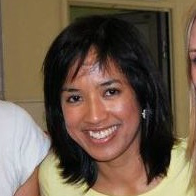Just last month, rallies under Bersih 4 were held all over Malaysia, calling for the resignation of Prime Minister Datuk Seri Najib Razak, in response to the graft allegations against him.
 The sentiments surrounding the rallies were various, and interestingly not always based on tiptoeing party lines (which Malaysian politicians are notorious for).
The sentiments surrounding the rallies were various, and interestingly not always based on tiptoeing party lines (which Malaysian politicians are notorious for).
Not surprisingly, the prime minister himself spoke out in defence of himself, and in defiance of the protests, calling the rallies immature and being against the proper channel of how democracy works.
Are citizen protests a breach of democracy?
Further away from Tanah Air, since a few months ago, a similar wave of protests spread across the whole of Guatemala in response to a corruption scandal implicating the nation's elites, including its president, Molino Perez.
The events culminated last week, when the (then) president, after being stripped of his political immunity and deserted by key members of his political cabinet, stepped down as president. Hours after his resignation, he was arrested and is currently awaiting trial.
This is not a narrative that happened overnight nor was this narrative an easy one.
On the contrary, this narrative takes place in a country plagued by violence and marked by a violent 36-year civil war, where more than 200,000 Guatemalans lost their lives, over one million people displaced, and villages populated by civilian populations burnt to the ground as a result of military counter-insurgency operations.
This legacy of 36 years of armed conflict, still exercises profound effects on the nation long after the civil war, as the Guatemalan society continued to experience a difficult peace process and transition to democratic governance.
In some regions of the country, fear, militarisation and a culture of violence continues to exist as human rights violations, large-scale massacres and atrocities occur in the guise of counter-insurgency operations.
Military and political strategies were also frequently implemented to turn civil society against itself, in particular along ethnic or religious lines.
As a result, throughout much of its history, the people of Guatemala have been fractured, existing in a society characterised by extreme inequality and social exclusion rooted in ethnic divides, its justice system weakened and its leaders protected through institutionalised impunity.
Yet, in spite of the threats and dangers facing them, Guatemalans continued to struggle for their human rights and the rule of law during the peace process and afterwards.
Most recently, a movement of the people began in April, forging an unprecedented alliance out of the different groups within Guatemalan society.
For instance, the middle class of Guatemala City, which has long been reluctant to speak out, joined forces with the peasants and indigenous groups of Guatemala. The nation's churches and business leaders also eventually joined the side of the protesters to demand change.
The movement was inspired by an alliance developed in 2007 between the local prosecutors as well as international investigators backed by the United Nations (known as CICIG or the International Commission against Impunity in Guatemala) in order to expose the ties between politicians and Guatemala's criminal networks.
These eventually led to a series of inquiries and findings linking a criminal network referred to as "The Line" to the president, the vice-president and various top level administration, sparking the public's outrage and culminating in a political convulsion as Guatemalans began to unite and widespread protests surged through the nation.
The resignation and arrest of ex-president Molino Perez is not the end of the narrative for Guatemala. Rather, the journey is long and the future uncertain (elections were held last Sunday).
Adding to the problem is the lack of viable political alternatives to lead as president (the downside of elections).
Nevertheless, the protests by the people mark a strengthened democratic society, in which the people are able to participate and create political space for themselves.
Political convulsions created by civil societies, while different from how elections take place in a democratic society, are not contrary to how democracy works.
Rather, it represents a broader movement spread across continents, where discontent against ruling elites can be expressed by the people through widespread protests.
While the resignation was a key blow to Guatemala's entrenched corruption, the bigger narrative was that belonging to the public institutions of Guatemala, that had emboldened itself to uphold the rule of law and demonstrate willingness to hold corrupt elites into account, inspiring many Guatemalans to fight and speak out against the elite. – September 8, 2015.
* This is the personal opinion of the writer or publication and does not necessarily represent the views of The Malaysian Insider.


Comments
Please refrain from nicknames or comments of a racist, sexist, personal, vulgar or derogatory nature, or you may risk being blocked from commenting in our website. We encourage commenters to use their real names as their username. As comments are moderated, they may not appear immediately or even on the same day you posted them. We also reserve the right to delete off-topic comments